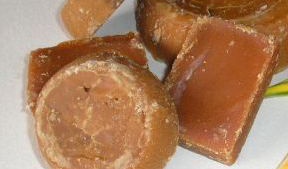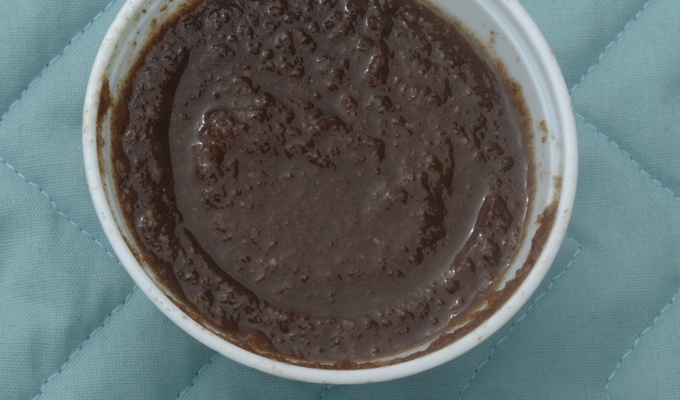Panela, piloncillo, or rapadura is an unrefined whole cane sugar, typical of Central and Latin America. It is a solid form of sucrose derived from the boiling and evaporation of sugarcane juice.
In Chile, Bolivia, and Peru, it is called chancaca - though note that this also refers to a syrup made with the same sugar.
In Mexico, unrefined whole cane sugar is piloncillo, which means "little loaf", because of the traditional shape in which this smoky, caramel-scented, and earthy sugar is produced. Just like brown sugar, two varieties of piloncillo are available; one is lighter and one darker.
Unrefined, it is commonly used in Mexico, where it has been around for at least 500 years. Made from crushed sugar cane, the juice is collected, boiled, and poured into molds, where it hardens into blocks.
Panela is sold in many forms, including liquid, granulated, and solid blocks, and is used in the canning of foods, as well as in confectionery, soft drinks, baking, and vinegar, beer, and winemaking.

